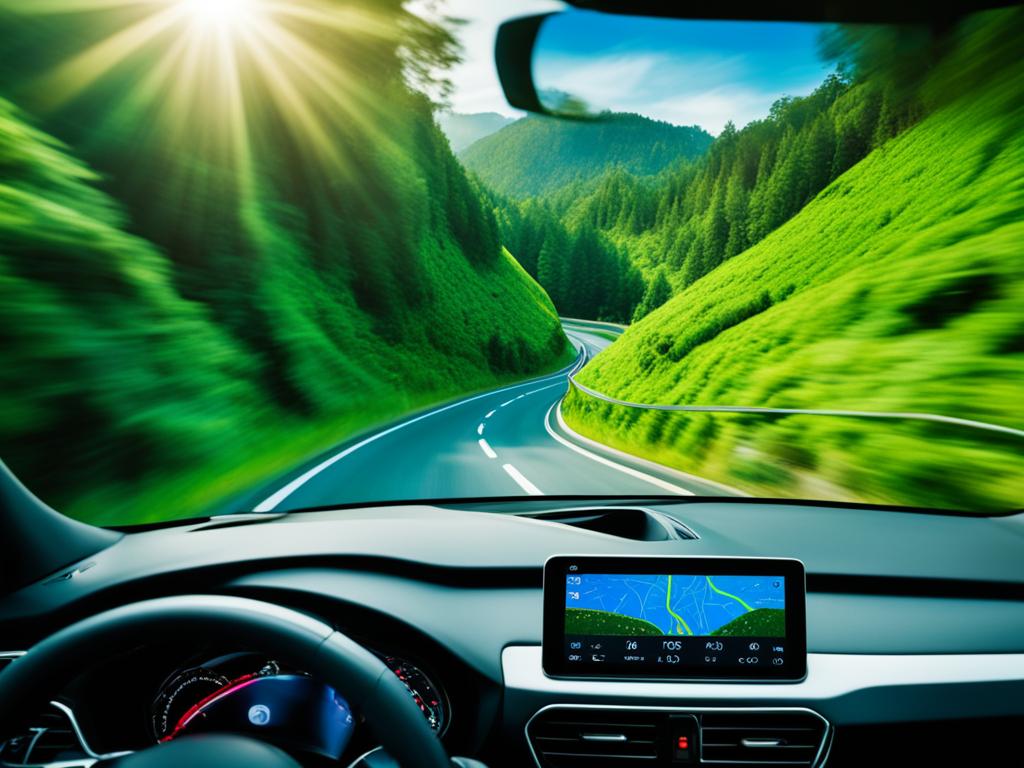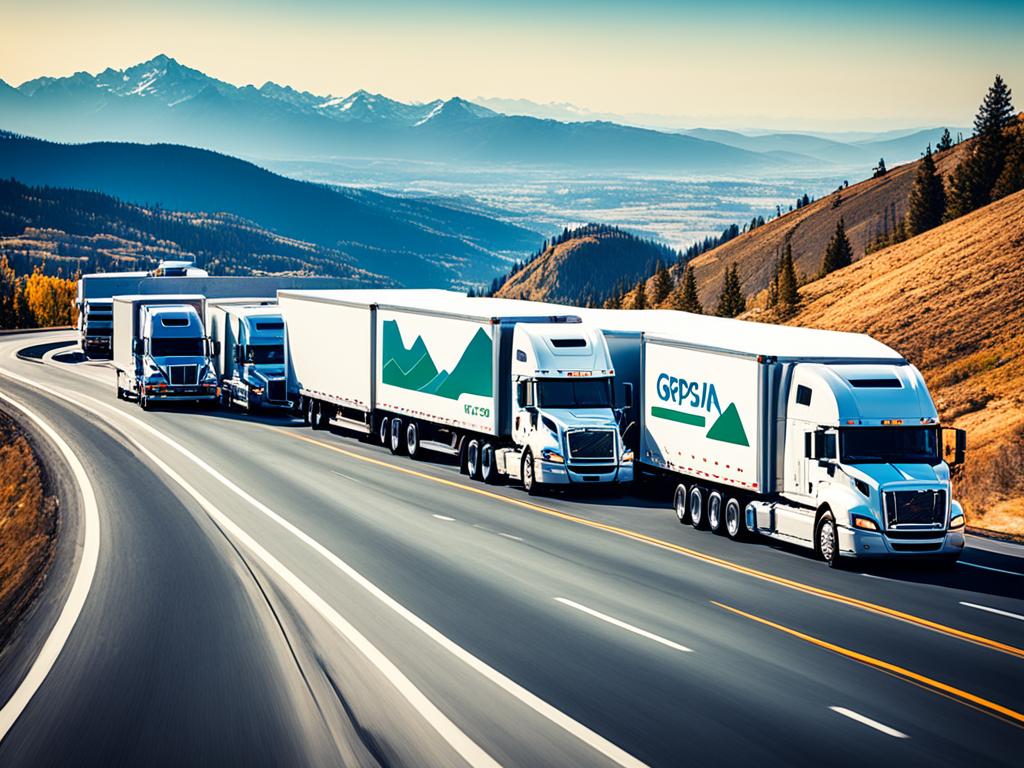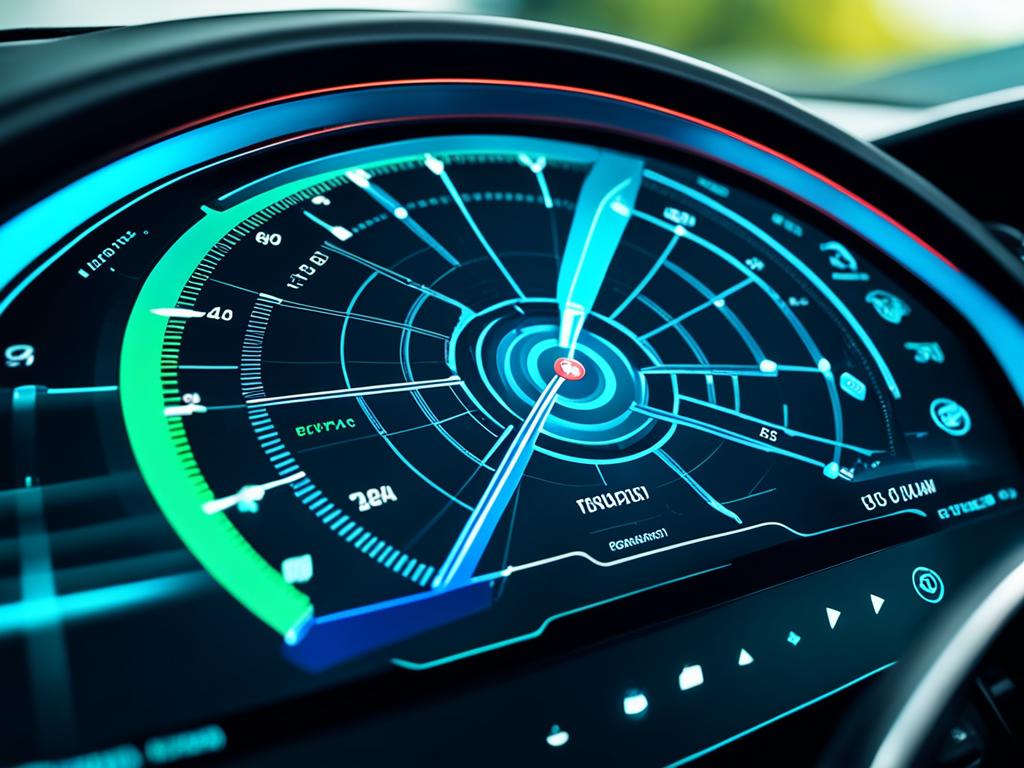The way we travel has changed a lot thanks to GPS technology. It has made finding our way and planning trips much simpler. GPS stands for Global Positioning System. This system uses satellites to find where we are on Earth very accurately. It was first used in the 1970s by the military. But, it was opened up for everyone to use in the 1980s. This change had a huge effect on how we navigate around the world.
Key Takeaways
- GPS technology was originally developed for military use but has since been adopted for civilian applications.
- GPS operates through a network of satellites that transmit signals to GPS receivers, enabling precise location tracking and navigation.
- GPS has transformed the travel industry, providing accurate navigation, efficient route planning, and real-time tracking capabilities.
- GPS devices and apps offer features like real-time traffic updates and optimal route suggestions, enhancing the overall travel experience.
- The real-time tracking capabilities of GPS are crucial in business operations, especially in fleet management.
Understanding GPS Technology
The Global Positioning System (GPS) technology has changed how we find our way around the world. It uses satellite signals to help users figure out exactly where they are. This system, based on trilateration, pinpoints a user’s position in three dimensions (latitude, longitude, and altitude).
Trilateration and Position Calculation
GPS devices pick up signals from satellites circling the Earth. They use these signals to find out how far away they are from each satellite. With signals from four satellites or more, the device can figure out the user’s location on Earth. This method, called trilateration, gives GPS amazing accuracy in giving us our location. This has changed how we travel, making it easier and more precise.
Time Synchronization and Precision
To work right, GPS needs to have the correct time. The satellites carry atomic clocks that match the time with the GPS device’s clock. This makes sure all the timing is perfect. The correct time is key for working out the user’s location and for GPS to show real-time directions.
User Interface and Data Presentation
GPS devices and apps show location data in an understandable way. They use digital maps, step-by-step directions, and visual signs to help us find our way. They constantly update data presentation so the information stays accurate and helpful.
Learning about GPS’s main ideas like trilateration, time synchronization, and its interface helps us travel better. It lets us move through the world with more confidence. GPS has truly changed how we discover new places.
Benefits of GPS Technology in Travel
GPS tech has changed the travel world for the better. It helps both travelers and businesses. It makes sure you reach your destination with no wrong turns. This is great for travelers. Real-time tracking is awesome for business setups. It lets them keep an eye on their vehicles. This way, they know exactly where all their vehicles are at any time.
GPS also tells you what traffic is like and gives you the best routes. This is a big plus in cities where traffic is always changing. Thanks to GPS, planning your route is easier than ever. It takes the stress out of finding the right way.

Accurate Navigation
GPS is amazing for guiding us accurately. It uses signals from at least 4 satellites to pinpoint your location. This keeps you from getting lost and makes traveling a lot smoother.
Real-Time Tracking
In business, GPS is a game-changer for managing fleets. You can always know where your vehicles are. This helps in making routes better, saving fuel, and running your business more efficiently.
Efficient Route Planning
GPS also helps with route planning. It updates you on traffic and finds the best paths. This is especially handy in busy cities. It gets you to your spot quicker and makes traveling more enjoyable.
GPS and Navigation: How Technology is Changing the Way We Travel
GPS technology has changed how people travel, giving them exact guidance. It stops people from getting lost and helps them get to places without trouble. GPS tracking is also big in business like managing fleets, making it safer and more efficient. As tech gets better, GPS apps help everyone have more control over where they go.
GPS devices use signals from 4 satellites to know where users are. This makes finding our way simpler than ever before. Features like real-time traffic updates make city travel better. Plus, GPS can pick the best route by checking things like traffic and road closures.
GPS is good for economies, makes businesses run smoother, and adds to our safety. For example, it helps fleets save gas by finding the best routes. Also, companies using GPS report they deliver things faster and run better.
GPS apps are getting even better, giving us more power over our locations. They help track vehicles in real-time, keeping users safe. And in emergencies, these apps with GPS can be a lifesaver.
Challenges of GPS Technology in Travel
GPS technology keeps getting better, changing how we travel. But with the benefits, we also see challenges. One big issue is how much we rely on this tech. If it fails, travel plans can stop. This can decrease how well we navigate without it.
Privacy is another top worry with GPS in travel. People are concerned about their locations being tracked. They fear someone might spy on them without permission.
Also, keeping GPS up-to-date costs a lot. Both individuals and businesses have to think carefully about these costs. This step is crucial to make sure the tech works well and fits their budget. The ongoing expense might make some stay away from using GPS fully.
Applications of GPS in the Travel Industry
GPS technology is now key in the travel industry. It offers many benefits that make traveling easier and better. It’s seen in rental car systems, personal devices, and apps, changing how we plan our journeys.
Rental Car Navigation Systems
Rental car navigation systems show how GPS tech helps travelers. They are part of the car’s dashboard, so drivers have easy access to directions. With features like real-time traffic updates, they help people avoid getting lost and travel efficiently.
Personal Navigation Devices
GPS devices for personal use are also a hit with travelers. These small, portable gadgets guide you with every turn. They offer traffic updates and show interesting places nearby. This helps make trips smoother and more fun.
Mobile Apps and Integration
Mobile apps with GPS have changed travel a lot. These apps give real-time traffic info, suggest fun stops, and connect with rental car systems. As a result, traveling has become smarter and more enjoyable.
GPS for Fleet Management and Logistics
GPS technology is changing the game in fleet management and logistics. It allows for real-time vehicle tracking, which better monitors how vehicles are used. This helps cut down on fuel costs and lessens vehicle wear and tear.
Logistics companies use GPS to watch over their drivers, keep an eye on their shipments, and make quick, smart decisions. This has led to faster deliveries and better overall operations.
Vehicle Tracking and Monitoring
GPS has made fleet management more efficient through live vehicle tracking. This kind of monitoring helps to find the best routes to save on fuel and keep vehicles in good shape.
Logistics companies see better delivery times and smoother operations by tracking their drivers with GPS. Safety during operations also improves because of this.
Route Optimization and Efficiency
Adding GPS into logistics has made things 27% more efficient. With GPS guiding the way and giving real-time traffic info, logistics firms can work smoother. This means quicker deliveries and happier customers.
Using GPS devices has also made a big dent in theft, down by 45%. This improves security and efficiency in logistics work.

| Metric | Improvement |
|---|---|
| Operational Efficiency in Logistics | 27% Increase |
| Theft Reduction for Vehicles and Assets | 45% Decrease |
| Response Time for Emergency Services | 35% Reduction |
| Usage of Personal GPS Tracking Devices | 20% Increase |
Personal Tracking and Safety Features
Using personal GPS devices is crucial for keeping our family safe. These small gadgets work with our phones to show locations quickly. Many people use them to keep an eye on their cars and ensure everyone’s safety.
Location Sharing and Monitoring
Connecting GPS with our phones has become a great help. Now, with a tap, we can let friends and family know where we are. This is key in case of trouble, offering a fast way to get help when we need it most.
Emergency Support and Assistance
GPS systems are also changing how we get emergency help. With the right app, you can alert rescue teams with your exact location. This quick link to help can save lives, giving people confidence as they explore the world.
Integrating GPS with Travel Apps and Services
Using GPS with travel apps has really made trips better. Google Maps gives you real-time traffic updates. This lets you choose the best way to go and avoid getting stuck.
It also shows you places nearby, like restaurants and gas stations. This way, you can find new places easily. It’s changed how we get ready for and travel on trips, making them more fun and hassle-free.
Real-Time Traffic Updates
With GPS apps, you get to know about traffic right away. This helps you plan your route to avoid traffic jams. You can also find out the best time to arrive somewhere.
Thanks to GPS, traveling has become smoother and less stressful.
Points of Interest and Recommendations
GPS apps not only tell you about traffic but also about cool places nearby. Once they know where you are, they can recommend good places to eat, see, or stop by. This makes exploring a new area much more fun and easy.

Future Trends and Advancements in GPS Navigation
GPS technology is growing fast, and it’s changing how we travel. Soon, we’ll see big steps in things like AR navigation, cars that talk to GPS, and better tracking. For example, AR GPS can show digital info right on the world around us, making it easier and more fun to get around. Cars will join in, working with GPS for live traffic updates, finding the best routes, and even driving themselves.
Also, we won’t lose sight of our things or our trips, thanks to new tracking tech. Systems using AI will pick the best route as traffic changes, making travel smoother. And, we’ll see ahead with predictive analytics, knowing the best time to travel. This makes planning and choosing what to do easier for everyone.
Adding 5G to GPS will make everything work better. 5G is quicker, reducing delays and making tracking much smoother. These new connections will also bring AI and AR directly into GPS services and asset management, making them even more helpful in the future.
Source Links
- https://muxtech.com.pk/how-has-gps-changed-the-way-we-travel/
- https://freeto-x.it/en/article/how-technology-is-revolutionizing-the-way-we-travel/
- https://www.traveldailynews.com/column/featured-articles/how-gps-technology-is-changing-the-travel-industry/
- https://landairsea.com/blog/reasons-why-gps-is-vital-to-our-society/
- https://medium.com/@alfredbeiley/how-is-gps-improving-the-way-we-travel-6ba2bc7c3e74
- https://www.intellitrac.com.au/GPS.html
- https://hellotracks.com/en/blog/How-to-Improve-your-GPS-Accuracy/
- https://zenduit.com/the-future-of-gps-tracking/
- https://www.ncbi.nlm.nih.gov/pmc/articles/PMC10208339/
- https://www.traveldailynews.com/column/featured-articles/how-gps-technology-is-changing-the-travel-industry
- https://muxtech.com.pk/how-has-gps-changed-the-way-we-travel
- https://www.linkedin.com/pulse/navigating-future-how-ai-redefining-gps-travel-devergies-ginguené-jjvhe?trk=public_post


